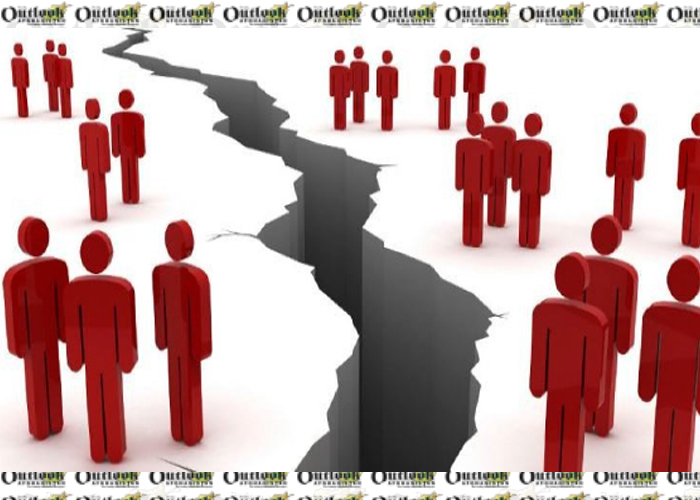The modem meaning of ethnicity represents “familiar groups of people sharing a culture, an origin, or a language. Ethnicity can be a framework of identification in order to better know a person of group of people. However, since earliest civilizations, the meaning of ethnos implied a lack of individuation, the lack of internal differentiation within a group developed in response to the perception of “other.” This meaning and function of ethnicity as a tool for classification of people into “us” and “them” has remained to this day in many societies including Afghanistan. Dividing the people into “us” and “them”, means that anything that the people who belong to us is correct and the beliefs and actions of other groups are wrong. Through this process, ethnicity is seen as an entity whose major function is to stress and reproduce basic social similarities and differences among groups of people.
Why Politicization of Ethnicity is the Cause of Conflicts?
Experience of many countries including Afghanistan shows that through the process of politicization the power of ethnicity can be turned into a source of hatred, of stereotyping and ultimately can be mobilized into particularly confrontational nationalism.
Politicized ethnicity has been a major feature in the world politics, a development that has undermined inclusivity and provoked conflicts in many countries. This has subsequently put the survival of many states at risk. Many countries, especially Afghanistan, are grappling with the challenges posed by politicized ethnicity which not only threaten to tear down the state, but has also made the consolidation of democracy almost impossible. Indeed, no country appears immune to these challenges as the contagion seems most generalized in specific parts of the country with already severe inequalities.
Politicized ethnicity is exacerbated when the elites of the politically dominated ethnic group abuse power by providing state benefits to their co-ethnics. The dominant ethnic group in such cases use ethnicity as the device for exclusion and mobilization where the group power redistributes resources. Besides, it is common especially in Afghanistan for the group in power to design policies that expropriate ethnic losers and prevent them from enjoying state sanctioned programs. This further creates conducive environment for politicized ethnicity and subsequently conflicts to flourish. Based on this approach, specific parts of Afghanistan have nearly always been deprived of national benefits; they have less enjoyed the development programs.
In Afghanistan, politicized ethnicity has often resulted in exclusion of ethnic minorities where their values, goals and aspirations are disregarded by the state.
This provokes politics of rebellion among affected groups which mutate into violent conflicts if the political channels to voice their interest are weak. In addition to that, ethic based politics has been exacerbated by the fact that a competitive place where ethnicity s used in many places as a tool for mobilizing people and building coalitions that are used to get power and control resources. This politicized ethnicity in Afghanistan negatively affects specific ethnic groups.
Politicized ethnicity has been quite widespread in different periods of the history in Afghanistan. During the era of Abdul-Rahman Khan, Hazaras were termed as infidels and their lives and beliefs did not matter. During this period, their lands were seized and they were replaced in different parts of the country.
However, Amanullah Khan is considered as one of the pioneer rulers of the country that tried to fix the problem through expanding ethnic and gender inclusion but his government did not last much.
Politicized ethnicity has frequently fueled ethno-nationalist conflicts in Afghanistan. This is because such politics promotes ethnic mobilizations by both the governing elites and the affected groups who underrepresented in the government.
Consequently, such excluded groups as they demand for inclusion as in Behsood and some other parts of the country recently. Hereby, I would like to argue that failure to address-socio economic inequalities by the state leads to violation of the political rights of the affected groups. Therefore, this shows that a just, inclusive and transparent system of governance is crucial in alleviating deep-rooted dissatisfaction amongst various ethnic groups that frequently leads to conflicts.
At the sometime, the underrepresentation of some ethnic groups in governance compels the affected group or groups to demand for the formation of a new mechanism which their co-ethnic is the dominant group.
Politicized ethnicity leads to exclusion of certain ethnic groups and subsequently fuels conflicts suing politics, resource distribution and violation of human rights.
As a result, it is vital to put in place and strengthen a just, inclusive and transparent system of governance in order to alleviate deep-rooted dissatisfaction amongst various ethnic groups in Afghanistan.
Home » Opinion » Politicization of Ethnicity: The Main Cause of Afghanistan Conflicts
Politicization of Ethnicity: The Main Cause of Afghanistan Conflicts
| Mohammad Sakhi Rezaie

